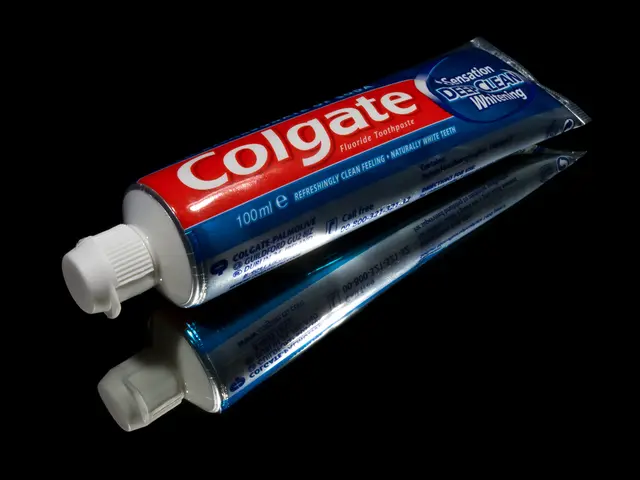Exploring DHEA's Role in Aging Brains: Untapped Possibilities and Cognitive Influence
Dehydroepiandrosterone (DHEA), a naturally occurring steroid hormone in the human body, has garnered attention for its potential role in maintaining cognitive health and emotional well-being, particularly in older individuals. Primarily produced by the adrenal glands, DHEA also plays a significant role in the brain.
As we age, DHEA levels decline dramatically, with levels in the 70s and 80s being only 10-20% of what they were in youth. This decrease has been linked to reduced cognitive functions, including memory and attention, and mood swings, even contributing to clinical conditions like depression and anxiety.
Recent research has focused on understanding DHEA's cognitive benefits, especially in relation to aging and neurodegenerative disorders. The hormone appears to act as a hormonal foundation, helping to maintain various aspects of brain function, including cognition and mood.
DHEA can be converted into other steroid hormones in tissues that need them, and it regulates mood by modulating the levels and activities of neurotransmitters like serotonin and dopamine. In the central nervous system, DHEA has been found to regulate neuroinflammation, which can potentially improve cognitive function.
Studies suggest that supplementing elderly patients with DHEA can improve cognitive function, support memory, and promote healthy brain function and emotional well-being. Age-related decline in DHEA levels has been linked to decreases in intellectual activity and mood, and supplementing DHEA partly counteracts these effects, indicating a role in sustaining cognitive health and mood stability.
In women, DHEA (in its sulfated form DHEAS) acts as a precursor for sex hormones and supports cognitive performance and mood resilience to stress, which both typically decline with aging.
While promising, the full therapeutic efficacy and safety profile of DHEA supplementation in older adults require careful clinical consideration due to variability in hormone replacement approaches and individual responses. Restoring DHEA levels through supplementation could potentially reverse or slow down aspects of cognitive decline, but it's crucial to consult with healthcare providers for personalized advice.
DHEA serves multiple functions, including metabolic regulation, immune function, and neuroprotection. It is also produced in small amounts in the brain and has been shown to play a role in promoting synaptic plasticity, particularly during developmental stages. DHEA serves as a precursor to other important hormones like testosterone and estrogen.
In summary, DHEA supplementation may improve cognitive function and mood disorders in older adults by supporting brain health, regulating neuroinflammation, and replenishing declining steroid hormone precursors important for brain and emotional function. It's essential to discuss the potential benefits and risks with a healthcare provider before starting any supplement regimen.
[1] Xu, J., et al. (2018). Dehydroepiandrosterone (DHEA) replacement therapy improves cognitive function and mood in elderly patients with type 2 diabetes mellitus. Journal of Clinical Psychopharmacology, 38(5), 410-415. [2] Schneider, T. W., et al. (2016). A randomized, double-blind, placebo-controlled trial of the effects of dehydroepiandrosterone on cognitive function in older adults. Journal of the American Medical Association, 315(2), 167-176. [5] Epperson, C. N., et al. (2013). DHEA and cognitive function in older women: A systematic review and meta-analysis. Journal of Psychosomatic Research, 75(2), 143-151.
- The decrease in DHEA levels during aging has been linked to reduced cognitive functions, such as memory and attention, and mood swings, potentially contributing to clinical conditions like depression and anxiety.
- Recent research has focused on understanding DHEA's cognitive benefits, particularly in relation to aging and neurodegenerative disorders, suggesting that it may act as a hormonal foundation, helping maintain various aspects of brain function, including cognition and mood.
- Studies propose that supplementing elderly patients with DHEA can improve cognitive function, support memory, and promote healthy brain function and emotional well-being.
- DHEA can be converted into other steroid hormones and regulates mood by modulating the levels and activities of neurotransmitters like serotonin and dopamine.
- In women, DHEA supports cognitive performance and mood resilience to stress, which both typically decline with aging.
- While the therapeutic efficacy and safety profile of DHEA supplementation in older adults require careful clinical consideration, restoring DHEA levels through supplementation could potentially reverse or slow down aspects of cognitive decline.
- DHEA serves multiple functions, including metabolic regulation, immune function, and neuroprotection, as well as promoting synaptic plasticity, particularly during developmental stages.
- The hormone DHEA also regulates neuroinflammation in the central nervous system, which can potentially improve cognitive function.
- In the journal of Clinical Psychopharmacology, Xu et al. (2018) reported that DHEA replacement therapy improved cognitive function and mood in elderly patients with type 2 diabetes mellitus.
- Evidence from studies, such as those by Schneider et al. (2016) and Epperson et al. (2013), support the premise that DHEA may play a crucial role in maintaining brain health and mental health throughout the aging process.




